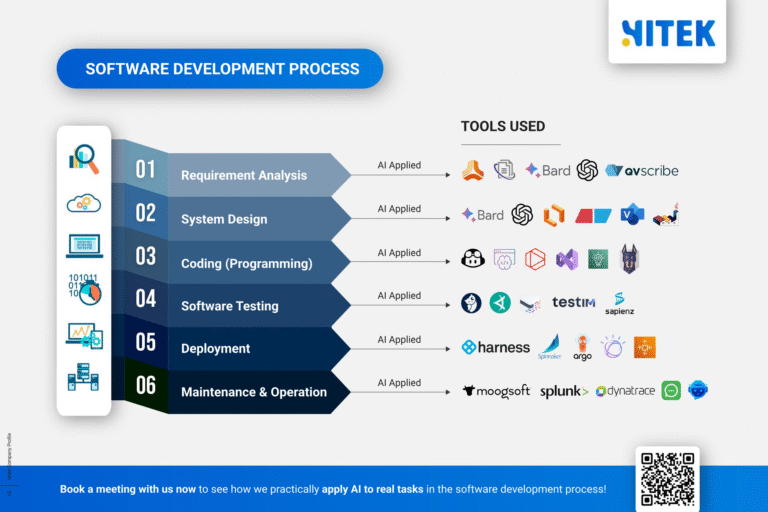Game development is an art form that combines creativity, technology, and storytelling. Whether you’re an indie developer or part of a larger studio, choosing the right game development software can make or break your project. But with so many options available, how do you decide which is best for your needs? This guide will explore Australia’s top game development tools, helping you find the perfect fit for your next big idea.
Contents
ToggleWhy Choosing the Right Game Development Software Matters
The right software can streamline your workflow, enhance creativity, and bring your vision to life. It’s not just about the features; it’s about finding a tool that aligns with your skill level, project requirements, and long-term goals. For Australian developers, factors like local support, pricing in AUD, and compatibility with regional markets can also play a role in the decision-making process.
Top Game Development Software for Australian Developers
Here’s a breakdown of the most popular game development tools used by professionals and hobbyists alike:
| Software | Best For | Pricing | Platform Support |
|---|---|---|---|
| Unity | 2D/3D games, cross-platform development | Free (Pro: AUD 2,040/year) | Windows, macOS, Linux |
| Unreal Engine | High-end 3D games, AAA titles | Free (5% royalty after USD 1M revenue) | Windows, macOS, Linux |
| Godot | Indie developers, open-source enthusiasts | Free | Windows, macOS, Linux |
| GameMaker Studio | 2D games, beginners | AUD 149/year | Windows, macOS, Ubuntu |
| RPG Maker | Story-driven RPGs | AUD 109 (one-time) | Windows, macOS |
1. Unity: The Versatile Powerhouse
Unity is one of the most widely used game development platforms globally, and for good reason. Its versatility makes it ideal for both 2D and 3D games, and its cross-platform capabilities allow you to deploy games on multiple devices, including PC, consoles, and mobile. Unity’s Asset Store is a treasure trove of pre-made assets, scripts, and tools, which can save you time and effort.
Unity offers localized pricing for Australian developers and a strong community presence, with regular meetups and workshops in cities like Sydney and Melbourne. Whether you’re creating a casual mobile game or a complex VR experience, Unity’s robust features and extensive documentation make it a top choice.
2. Unreal Engine: The Industry Standard for AAA Games
If you’re aiming to create visually stunning, high-end games, Unreal Engine is the go-to software. Known for its cutting-edge graphics and realistic physics, Unreal Engine has been used to develop blockbuster titles like Fortnite and Gears of War. Its Blueprint visual scripting system is a game-changer for developers who want to create complex gameplay without writing a single line of code.
Unreal Engine’s pricing model is particularly appealing for indie developers, as it’s free to use until your game generates over USD 1 million in revenue. Unreal Engine’s scalability and industry reputation make it a standout option for Australian studios working on ambitious projects.
3. Godot: The Open-Source Challenger
Godot is a free, open-source game engine gaining traction among indie developers. Its lightweight design and intuitive interface make it perfect for small teams or solo creators. Godot supports both 2D and 3D game development, and its node-based architecture allows for flexible and efficient workflow.
For Australian developers on a budget, Godot is a fantastic choice. It’s free, with no hidden fees or royalties, and its active community ensures you’ll always have access to support and resources. Its open-source nature allows you to customize the engine to suit your needs.
4. GameMaker Studio: Perfect for 2D Games
GameMaker Studio is a favorite among beginners and 2D game enthusiasts. Its drag-and-drop interface makes it easy to create games without prior coding experience, while its built-in scripting language, GML, offers more advanced capabilities for seasoned developers.
With its affordable pricing and user-friendly design, GameMaker Studio is an excellent option for Australian developers looking to create 2D games quickly and efficiently. Recent updates have also improved its performance and compatibility, making it a reliable choice for small—to medium-sized projects.
5. RPG Maker: Story-Driven Game Development
If you’re passionate about creating narrative-driven RPGs, RPG Maker is the tool for you. Explicitly designed for role-playing games, it has a suite of pre-built assets, characters, and maps, allowing you to focus on storytelling and gameplay mechanics.
RPG Maker’s one-time purchase model is a breath of fresh air in a world of subscription-based software. For Australian developers who love classic RPGs, this software offers a nostalgic yet powerful platform to bring your stories to life.
Key Factors to Consider When Choosing Game Development Software
- Skill Level: Are you a beginner or an experienced developer? Some tools, like GameMaker Studio, are designed with beginners in mind, while others, like Unreal Engine, cater to advanced users.
- Project Scope: Are you creating a simple 2D game or a complex 3D world? Choose software that aligns with your project’s requirements.
- Budget: Consider upfront costs and long-term expenses, such as royalties or subscription fees.
- Community and Support: A strong community can provide valuable resources, tutorials, and troubleshooting assistance.
- Localization: For Australian developers, local support and pricing in AUD can make a significant difference.
Final Thoughts: Which Software Is Right for You?
The best game development software ultimately depends on your unique needs and goals. Unity and Unreal Engine are excellent all-rounders, while Godot and GameMaker Studio cater to specific niches. RPG Maker offers a specialized platform for creating immersive RPGs if you’re passionate about storytelling.
For Australian developers, it’s also worth exploring local communities and resources. Platforms like the Game Developers Association of Australia (GDAA) and events like PAX Australia can provide valuable networking opportunities and insights into the industry.
Ready to start your game development journey? Download one of these tools today and bring your creative vision to life. And if you’re still unsure, why not try a few and see which one feels right? After all, the best software is the one that inspires you to create.
What’s your favorite game development tool? Share your thoughts in the comments below!









